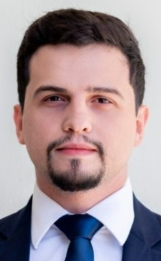Cryptocurrency regulation, voted late last year in the Brazilian congress, has finally come into force this month, potentially a first step toward broader sector-focused legislation.
President Lula da Silva signed a decree establishing the central bank, a regional landmark for financial regulatory innovation in recent years, as the primary supervisor of the crypto economy. Now it will monitor and regulate all virtual asset providers in the country, with industry observers hoping it could lead the way in crypto regulation at a global level.




“It is undoubtedly expected that crypto asset regulation will be greatly expanded in Brazil, particularly due to the central bank’s actions,” Aylton Gonçalves, a lawyer specialising in crypto and fintech regulation in the country, told Fintech Nexus. “Certainly, this initiative sets Brazil as an important jurisdiction within the global crypto economy landscape.”
The central bank governor has been a vocal blockchain enthusiast, underscoring its capabilities to promote long-term innovation in the sector. The regulator itself is inching closer to launching its own central bank digital currency, the digital Real. It looks to launch an initial version by the end of next year.
The decree intends to empower the central bank to regulate and oversee the providers. Some, such as expert lawyer Nicole Dyskant, believe it reflects the government’s “strong commitment” to the matter.
A call to regulate
The overarching goal is to prevent scams related to cryptocurrency in Brazil. These have sadly proliferated in Brazil even as many lean into cryptocurrencies for legitimate purposes. Cryptocurrency specialists are confident it will contribute to regaining trust in the asset class, despite fintechs facing higher compliance costs.
A call to regulate the nascent industry has been on the rise globally, especially after the collapse of FTX and Signature Bank in the United States. “The Central Bank in Brazil will certainly have the power to mitigate risks concerning virtual asset providers. Also, to prevent some of the circumstances we have seen in the U.S.,” Gonçalves said.
The law creates a new specialized crime for fraud using virtual assets. It will carry a penalty of between two and six years of prison. It also stipulates the creation of a license for “virtual service providers,” for which companies in the sector, such as exchanges, must apply.
Cryptocurrency adoption in Brazil
In Latin America, the lure of crypto goes beyond pure speculation. Several countries in the region have stood out in rankings as significant adopters of the technology. Here, crypto is a tool to hedge against currency depreciation in inflation hotspots or as a vehicle for cross-border transactions.
“South American nations, surprisingly, have more crypto adoption per capita than much larger developed economies like the U.S. and EU,” said a report by Bitfinex, a global crypto exchange. “Despite being underserved by the traditional financial system, Latin America has a youthful population which is technically proficient, digitally savvy, online, and many of whom find employment remotely for U.S. and EU companies.”
For Gonçalves, the pros outweigh the cons. “The new regulation will have a positive effect on the crypto market in Brazil,” he said. Even though crypto firms will likely face greater scrutiny and costs, he argues that a robust framework would instill greater consumer confidence. This could lead to increased market penetration, he said.
.pp-multiple-authors-boxes-wrapper.box-post-id-45383.pp-multiple-authors-layout-boxed.multiple-authors-target-shortcode.box-instance-id-1 .box-header-title { font-size: 20px !important; } .pp-multiple-authors-boxes-wrapper.box-post-id-45383.pp-multiple-authors-layout-boxed.multiple-authors-target-shortcode.box-instance-id-1 .box-header-title { font-weight: bold !important; } .pp-multiple-authors-boxes-wrapper.box-post-id-45383.pp-multiple-authors-layout-boxed.multiple-authors-target-shortcode.box-instance-id-1 .box-header-title { color: #000000 !important; } .pp-multiple-authors-boxes-wrapper.box-post-id-45383.pp-multiple-authors-layout-boxed.multiple-authors-target-shortcode.box-instance-id-1 .pp-author-boxes-avatar img { border-style: none !important; } .pp-multiple-authors-boxes-wrapper.box-post-id-45383.pp-multiple-authors-layout-boxed.multiple-authors-target-shortcode.box-instance-id-1 .pp-author-boxes-avatar img { border-radius: 5% !important; } .pp-multiple-authors-boxes-wrapper.box-post-id-45383.pp-multiple-authors-layout-boxed.multiple-authors-target-shortcode.box-instance-id-1 .pp-author-boxes-name a { font-size: 24px !important; } .pp-multiple-authors-boxes-wrapper.box-post-id-45383.pp-multiple-authors-layout-boxed.multiple-authors-target-shortcode.box-instance-id-1 .pp-author-boxes-name a { font-weight: bold !important; } .pp-multiple-authors-boxes-wrapper.box-post-id-45383.pp-multiple-authors-layout-boxed.multiple-authors-target-shortcode.box-instance-id-1 .pp-author-boxes-name a { color: #000000 !important; } .pp-multiple-authors-boxes-wrapper.box-post-id-45383.pp-multiple-authors-layout-boxed.multiple-authors-target-shortcode.box-instance-id-1 .pp-author-boxes-description { font-style: none !important; } .pp-multiple-authors-boxes-wrapper.box-post-id-45383.pp-multiple-authors-layout-boxed.multiple-authors-target-shortcode.box-instance-id-1 .pp-author-boxes-description { text-align: left !important; } .pp-multiple-authors-boxes-wrapper.box-post-id-45383.pp-multiple-authors-layout-boxed.multiple-authors-target-shortcode.box-instance-id-1 .pp-author-boxes-meta a span { font-size: 20px !important; } .pp-multiple-authors-boxes-wrapper.box-post-id-45383.pp-multiple-authors-layout-boxed.multiple-authors-target-shortcode.box-instance-id-1 .pp-author-boxes-meta a span { font-weight: normal !important; } .pp-multiple-authors-boxes-wrapper.box-post-id-45383.pp-multiple-authors-layout-boxed.multiple-authors-target-shortcode.box-instance-id-1 .pp-author-boxes-meta { text-align: left !important; } .pp-multiple-authors-boxes-wrapper.box-post-id-45383.pp-multiple-authors-layout-boxed.multiple-authors-target-shortcode.box-instance-id-1 .pp-author-boxes-meta a { background-color: #6adc21 !important; } .pp-multiple-authors-boxes-wrapper.box-post-id-45383.pp-multiple-authors-layout-boxed.multiple-authors-target-shortcode.box-instance-id-1 .pp-author-boxes-meta a { color: #ffffff !important; } .pp-multiple-authors-boxes-wrapper.box-post-id-45383.pp-multiple-authors-layout-boxed.multiple-authors-target-shortcode.box-instance-id-1 .pp-author-boxes-meta a:hover { color: #ffffff !important; } .pp-multiple-authors-boxes-wrapper.box-post-id-45383.pp-multiple-authors-layout-boxed.multiple-authors-target-shortcode.box-instance-id-1 .ppma-author-user_url-profile-data { color: #6adc21 !important; } .pp-multiple-authors-boxes-wrapper.box-post-id-45383.pp-multiple-authors-layout-boxed.multiple-authors-target-shortcode.box-instance-id-1 .ppma-author-twitter-profile-data span, .pp-multiple-authors-boxes-wrapper.box-post-id-45383.pp-multiple-authors-layout-boxed.multiple-authors-target-shortcode.box-instance-id-1 .ppma-author-twitter-profile-data i { font-size: 16px !important; } .pp-multiple-authors-boxes-wrapper.box-post-id-45383.pp-multiple-authors-layout-boxed.multiple-authors-target-shortcode.box-instance-id-1 .ppma-author-twitter-profile-data { background-color: #6adc21 !important; } .pp-multiple-authors-boxes-wrapper.box-post-id-45383.pp-multiple-authors-layout-boxed.multiple-authors-target-shortcode.box-instance-id-1 .ppma-author-twitter-profile-data { border-radius: 50% !important; } .pp-multiple-authors-boxes-wrapper.box-post-id-45383.pp-multiple-authors-layout-boxed.multiple-authors-target-shortcode.box-instance-id-1 .ppma-author-twitter-profile-data { text-align: center !important; } .pp-multiple-authors-boxes-wrapper.box-post-id-45383.pp-multiple-authors-layout-boxed.multiple-authors-target-shortcode.box-instance-id-1 .ppma-author-linkedin-profile-data span, .pp-multiple-authors-boxes-wrapper.box-post-id-45383.pp-multiple-authors-layout-boxed.multiple-authors-target-shortcode.box-instance-id-1 .ppma-author-linkedin-profile-data i { font-size: 16px !important; } .pp-multiple-authors-boxes-wrapper.box-post-id-45383.pp-multiple-authors-layout-boxed.multiple-authors-target-shortcode.box-instance-id-1 .ppma-author-linkedin-profile-data { background-color: #6adc21 !important; } .pp-multiple-authors-boxes-wrapper.box-post-id-45383.pp-multiple-authors-layout-boxed.multiple-authors-target-shortcode.box-instance-id-1 .ppma-author-linkedin-profile-data { border-radius: 50% !important; } .pp-multiple-authors-boxes-wrapper.box-post-id-45383.pp-multiple-authors-layout-boxed.multiple-authors-target-shortcode.box-instance-id-1 .pp-author-boxes-recent-posts-title { border-bottom-style: dotted !important; } .pp-multiple-authors-boxes-wrapper.box-post-id-45383.pp-multiple-authors-layout-boxed.multiple-authors-target-shortcode.box-instance-id-1 .pp-multiple-authors-boxes-li { border-style: solid !important; } .pp-multiple-authors-boxes-wrapper.box-post-id-45383.pp-multiple-authors-layout-boxed.multiple-authors-target-shortcode.box-instance-id-1 .pp-multiple-authors-boxes-li { color: #3c434a !important; }
- SEO Powered Content & PR Distribution. Get Amplified Today.
- PlatoData.Network Vertical Generative Ai. Empower Yourself. Access Here.
- PlatoAiStream. Web3 Intelligence. Knowledge Amplified. Access Here.
- PlatoESG. Automotive / EVs, Carbon, CleanTech, Energy, Environment, Solar, Waste Management. Access Here.
- BlockOffsets. Modernizing Environmental Offset Ownership. Access Here.
- Source: https://www.fintechnexus.com/cryptocurrency-regulation-comes-into-force-in-brazil/
- :has
- :is
- ][p
- 1
- a
- actions
- adopters
- Adoption
- After
- against
- aires
- All
- also
- america
- American
- Americas
- an
- and
- Apply
- ARE
- Argues
- AS
- asset
- asset class
- Assets
- At
- Bank
- BE
- been
- being
- believe
- between
- Beyond
- Bitfinex
- blockchain
- bold
- Brazil
- Brazilian
- broader
- buenos
- Buenos Aires
- built
- by
- call
- capabilities
- Capita
- carry
- Center
- central
- Central Bank
- central bank digital currency
- certainly
- circumstances
- class
- closer
- code
- Collapse
- color
- come
- comes
- Companies
- compliance
- concerning
- confidence
- confident
- Congress
- Cons
- consumer
- contribute
- Costs
- could
- countries
- country
- creation
- Crime
- cross-border
- crypto
- Crypto adoption
- crypto asset
- crypto economy
- crypto exchange
- crypto firms
- Crypto Lawyer
- Crypto Market
- Crypto regulation
- cryptocurrencies
- cryptocurrency
- cryptocurrency regulation
- Currency
- DA
- Despite
- developed
- digital
- digital currency
- digitally
- due
- economies
- economy
- effect
- employment
- empower
- end
- enthusiast
- especially
- establishing
- Ether (ETH)
- EU
- Even
- exchange
- Exchanges
- expanded
- expected
- expert
- expertise
- Face
- facing
- false
- Finally
- financial
- Financial Market
- financial system
- Financial Times
- Find
- fintech
- fintech regulation
- fintechs
- firms
- First
- For
- Force
- Framework
- fraud
- FTX
- Global
- Global Crypto
- global market
- Globally
- goal
- Goes
- Governor
- greater
- greatly
- Have
- he
- hedge
- here
- higher
- hoping
- hover
- HTTPS
- i
- important
- in
- increased
- industry
- inflation
- initial
- Initiative
- Innovation
- Intelligence
- intends
- into
- IT
- ITS
- itself
- journalist
- jurisdiction
- landmark
- landscape
- larger
- Last
- Last Year
- LATAM
- Late
- Latin
- latin america
- Latin American
- launch
- launching
- Law
- lawyer
- lead
- left
- Legislation
- legitimate
- Level
- License
- like
- likely
- Lives
- long-term
- LOOKS
- lula
- many
- Market
- Market Trends
- Matter
- Mitigate
- Monitor
- Month
- more
- much
- must
- nascent
- Nations
- New
- New York
- New York Times
- news
- next
- nexus
- normal
- now
- of
- on
- online
- or
- organizations
- out
- outweigh
- overarching
- oversee
- own
- particularly
- penetration
- per
- plato
- Plato Data Intelligence
- PlatoData
- population
- positive
- Post
- potentially
- power
- prevent
- primary
- prison
- promote
- PROS
- providers
- purposes
- real
- recent
- reflects
- region
- regional
- regularly
- Regulate
- Regulation
- regulator
- regulatory
- related
- report
- reporter
- Reports
- Rise
- risks
- robust
- s
- S&P
- S&P Global
- Said
- savvy
- scams
- scrutiny
- sector
- seen
- service
- service providers
- Sets
- several
- signature
- signed
- significant
- silva
- SIX
- solid
- some
- span
- specialising
- specialists
- specialized
- specializing
- speculation
- States
- Step
- such
- system
- technically
- Technology
- than
- that
- The
- The Financial Times
- The New York Times
- The Washington Post
- These
- this
- though?
- times
- to
- tool
- toward
- traditional
- Transactions
- Trends
- true
- Trust
- two
- u.s.
- underserved
- undoubtedly
- United
- United States
- using
- vehicle
- version
- Virtual
- virtual asset
- virtual assets
- voted
- washington
- washington post
- Way..
- we
- which
- will
- with
- within
- worked
- would
- year
- years
- york
- youthful
- zephyrnet











